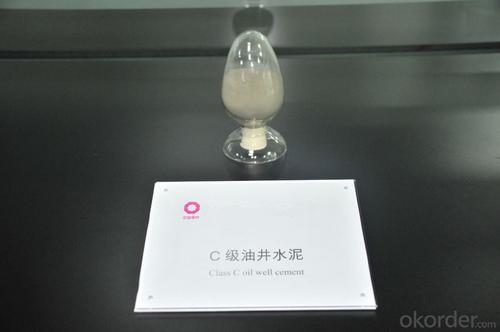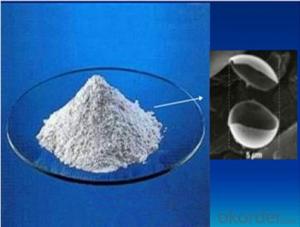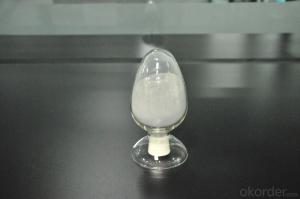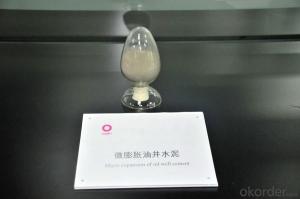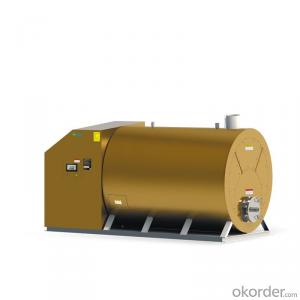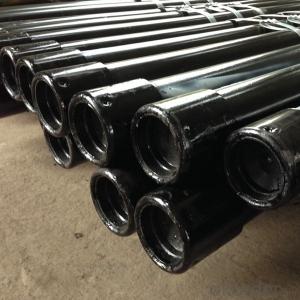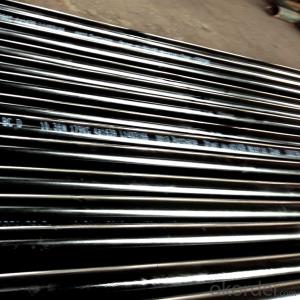Class C Oil Well Cement with API Certification
- Loading Port:
- China main port
- Payment Terms:
- TT OR LC
- Min Order Qty:
- 1 m.t.
- Supply Capability:
- 10000 m.t./month
OKorder Service Pledge
OKorder Financial Service
You Might Also Like
Class C oil well cement:
It is made from Portland cement clinker mainly composed of hydraulic calcium silicate, and appropriate amount of gypsum by finely grinding. It is applicable to the under-well circumstances with high requirements during early strength period. It is used for cementing from ground to the well depth of 1830m. It contains three varieties, i.e. ordinary cement, moderate sulfate resistant cement (MSR) and high sulfate resistant cement (HSR).
Main parameters:
It complies with national standard GB 10238 Oil Well Cement and conforms to the American standard API Specification Edition 24 10A.
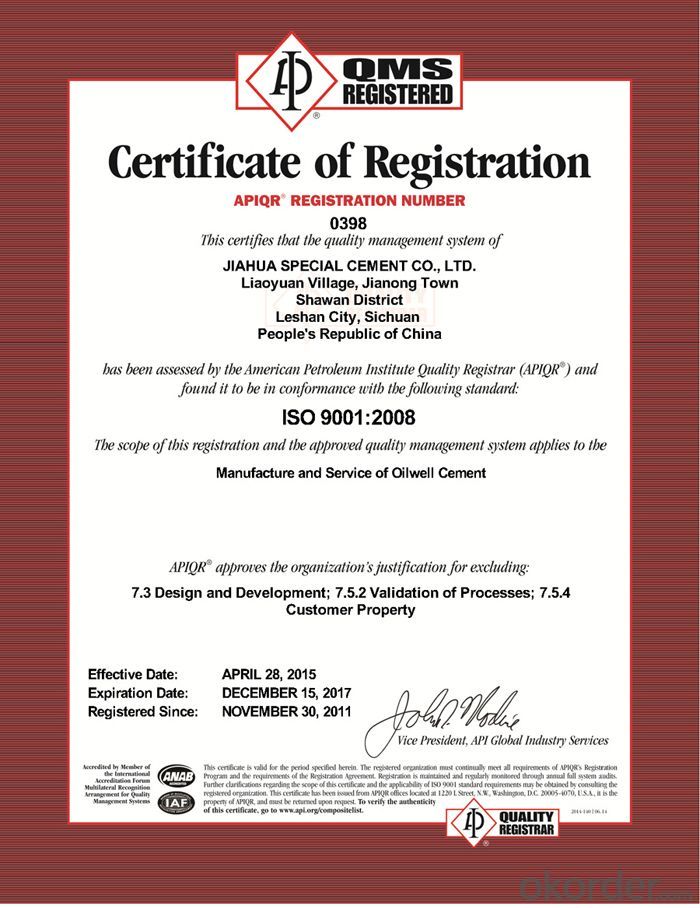
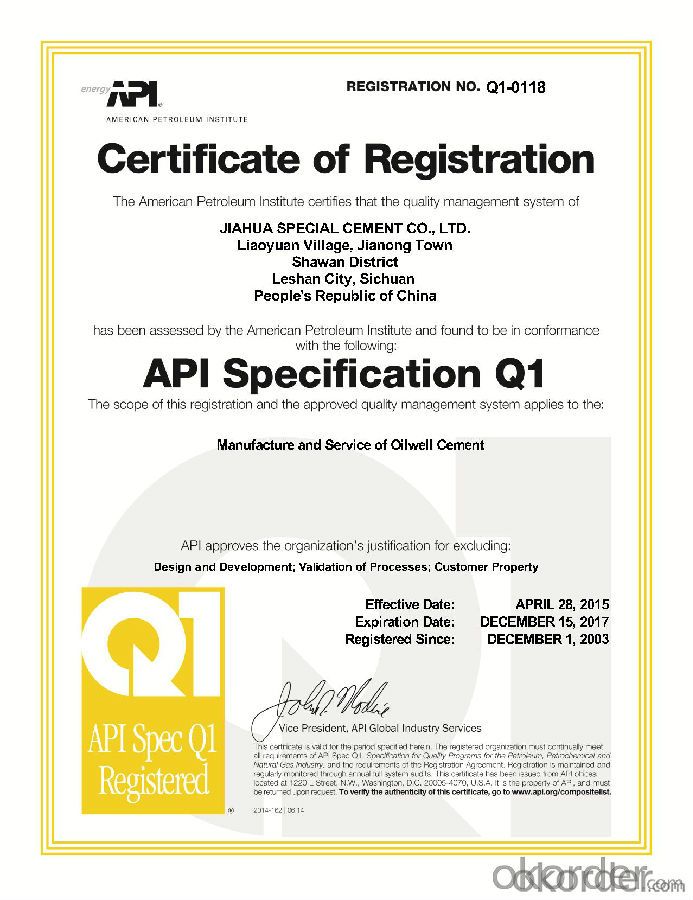
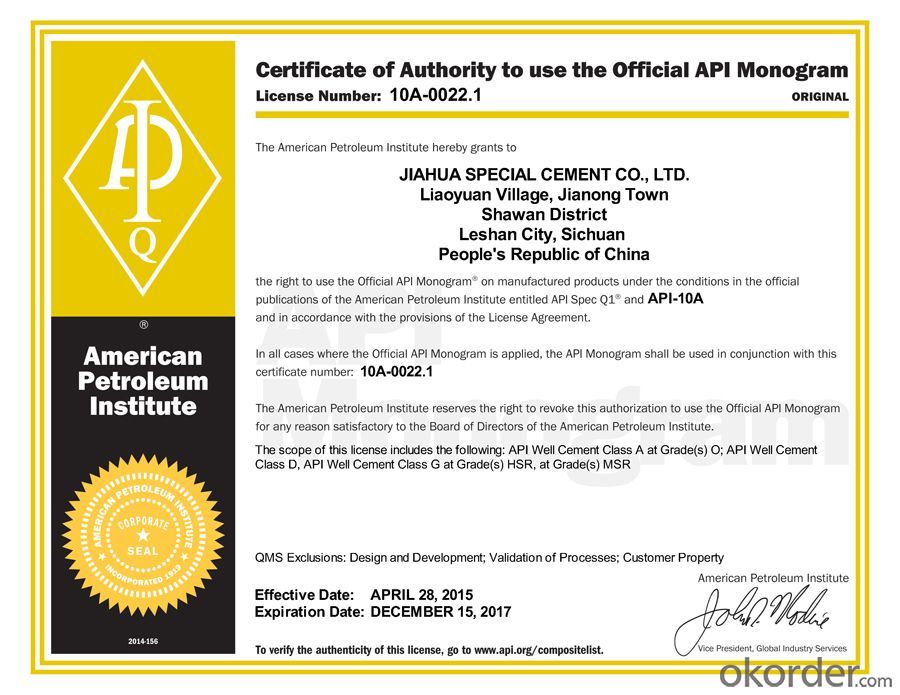
Packing and Storage
Packing: 1000kg/bag, 50kg/bag
Storage: Cement in transportation and storage when not damp and mixed with debris, different varieties and the strength grade of cement during storage to avoid confounding.
- Q: There are several forms of energyWhat are they called? What is the use?
- In accordance with the energy form can be classified into two primary energy and energy. The former refers to the nature of natural energy, existing energy, such as coal, petroleum, natural gas, water and so on. The latter refers to the secondary energy converted into energy products, such as electricity, gas, steam and various petroleum products
- Q: What are the types of new energy vehicles
- 3, hydrogen power vehicle:A car that uses hydrogen as fuel. Hydrogen powered vehicles is a truly zero emission vehicles, emissions from pure water, zero emissions, has no pollution, abundant reserves and other advantages, therefore, hydrogen powered vehicles is the ideal alternative to traditional car. However, the hydrogen fuel cell costs are too high, and hydrogen storage and transportation of fuel in accordance with the current technical conditions are relatively difficult.
- Q: What are the new energy products
- Traditionally, including thermal power, hydro power, nuclear power generation, as a result of the new energy is more extensive, in addition to the above said, such as wave power generation, biogas power generation, tidal power generation, etc., are new energy
- Q: What are the contents of bio energy
- Bio energy is a kind of renewable energy, which can convert biomass, water and other inorganic substances into biogas, hydrogen and other flammable gases or ethanol, oil and combustible liquid.
- Q: What is the energy consumption per unit product
- Definition: refers to the amount of energy consumed per unit of production, mainly has the following three kinds: (1) the comprehensive energy consumption per unit of product yield, refers to the number of all kinds of energy can produce average actual consumption, comprehensive energy consumption and corresponding product yield ratio.
- Q: What are the courses? What is the difference between specialized research nuclear power, hydropower and so on? I hope not to copy the existing information on the Internet, I learned about the best seniors
- The professional training with the theory of heat and mechanics, machinery, energy science, system engineering and so generous, grasp the solar and wind energy, biomass energy and geothermal energy and other new energy professional knowledge, can be engaged in the production of clean energy, renewable energy development and utilization of energy, environmental protection, new energy development, engineering design, optimal operation and production management, cross discipline of advanced composite talents with comprehensive ability, strong innovation spirit and practical ability. Graduates in energy, construction, transportation, materials, electronics, environmental protection and other industries engaged in new energy and renewable energy products R & D and production, engineering design and construction, as well as teaching, research and management, etc..
- Q: Just hired, listen to the boss, in the United States seems to be subject to tariff barriers, it seems that Europe has to impose punitive tariffs...... Would like to ask the industry, the market will be the future development of the market?
- Because of the decline in the cost of photovoltaic, trade stocks are devalued. Which buyers and sellers do not want to bypass the two dealers
- Q: At present, what are the main types of new energy vehicles?
- Pure electric vehicles (BEV, including solar cars):Is the main power to drive the car, at present, most of the models is directly driven by the motor, a part of the motor vehicle mounted in the engine compartment, there is also a part of the rotor four motors directly to the wheels as, and the difficulty of power storage technology.
- Q: What is the cost effectiveness ratio of energy management in energy quality?
- The laws of the state set the maximum value for the former, which set the minimum value; as a rigid index of energy efficiency regulationsAlthough different countries have different national conditions according to different national conditions, these two points are regarded as the final judging index
- Q: What is mobile energy? A new kind of energy? There is no actual product?
- Mobile energy is not a specific thing, is a new way of energy use. This is a new concept of Hienergy raised last year, which is not subject to local constraints can provide energy, and can move, no matter where, as long as the sun, it can provide power.
Send your message to us
Class C Oil Well Cement with API Certification
- Loading Port:
- China main port
- Payment Terms:
- TT OR LC
- Min Order Qty:
- 1 m.t.
- Supply Capability:
- 10000 m.t./month
OKorder Service Pledge
OKorder Financial Service
Similar products
Hot products
Hot Searches
Related keywords


